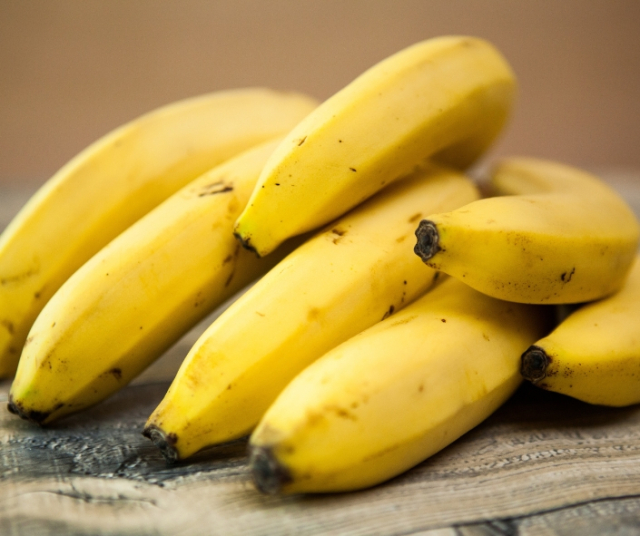The banana, scientifically known as Musa, is one of the most consumed fruits in the world. Its popularity is due not only to its sweet and pleasant flavor, but also to the numerous health benefits it provides. This versatile fruit is an excellent source of essential nutrients and offers a wide range of health benefits that go beyond its delicious taste.
You might be interested in: Benefits of drinking coffee - Health
Key Nutrients in Bananas
Bananas are a rich source of vitamins, minerals and other bioactive compounds that can have a positive impact on health. Some of the most important nutrients found in bananas include:
Vitamin C
Banana is an excellent source of vitamin C, an antioxidant that plays a fundamental role in protecting cells against damage caused by free radicals. Vitamin C is also essential for the formation of collagen, a protein important for skin, bones and blood vessels.
Vitamin B6
Vitamin B6, also known as pyridoxine, is essential for carbohydrate, protein and fat metabolism. It also plays a key role in brain function and the immune system.
Potassium
Potassium is an essential mineral that plays a critical role in regulating blood pressure and muscle function. Bananas are one of the best natural sources of potassium, making them a healthy choice for maintaining electrolyte balance in the body.
Fiber
Dietary fiber is important for maintaining a healthy and regular digestive system. Bananas contain both soluble and insoluble fiber, which helps maintain bowel regularity and can prevent constipation.
Antioxidants
In addition to vitamin C, bananas contain other antioxidants, such as dopamine and catechin, which can help combat oxidative stress in the body and reduce the risk of chronic diseases.
Health Benefits of Banana
Now that we've reviewed the key nutrients present in bananas, it's time to explore the specific health benefits this fruit offers:
1. Blood Pressure Regulation
The high potassium content in bananas can help lower blood pressure. Potassium acts as a vasodilator, meaning it helps relax the walls of blood vessels, which decreases pressure on the cardiovascular system and reduces the risk of hypertension.
2. Improves Digestive Function
The fiber in bananas promotes healthy digestion and can prevent constipation. Additionally, bananas contain pectin, a soluble fiber that can help regulate intestinal transit.
3. Increased Energy
The carbohydrates in bananas, mainly in the form of starch and natural sugars such as glucose, fructose and sucrose, provide a quick source of energy. This makes them an ideal option as a pre- or post-exercise snack.
4. Support for Heart Health
The antioxidants and potassium in bananas may help reduce the risk of heart disease. Regular potassium intake has been associated with decreased mortality from cardiovascular diseases.
5. Stress Reduction
Bananas contain dopamine and other compounds that can help improve mood and reduce stress. Dopamine is a neurotransmitter that is related to feelings of well-being and happiness.
6. Helps in Weight Loss
Despite their reputation as a high-calorie fruit, bananas can be helpful in weight loss. Its high fiber content can help keep you feeling full, which can reduce total caloric intake.
7. Support for Bone Health
Bananas contain several nutrients that are important for bone health, including potassium and vitamin B6. These nutrients contribute to the formation and maintenance of strong bones.
How to Incorporate Bananas into your Diet
Now that we know the benefits of bananas, it is important to know how to effectively incorporate them into our daily diet. Here are some ideas:
Shakes and Smoothies
Bananas are a popular ingredient in smoothies and smoothies due to their creamy texture and natural sweetness. Pair them with yogurt, spinach, strawberries, and protein powder for a healthy, energy-packed breakfast.
Healthy Snack
Bananas are a convenient and portable snack that can be enjoyed at any time of the day. Combine them with peanut or almond butter for an even more nutritious snack.
Healthy Desserts
Use bananas in the preparation of healthy desserts, such as frozen banana ice cream or banana oatmeal cookies. These options are low in calories and added sugars.
Accompaniment for Cereals
Add sliced banana to your morning cereal or oatmeal to increase the fiber and nutrients in your breakfast.
Ingredients in Savory Dishes
Bananas can also be used in savory dishes, such as chicken curry or sweet and sour pork dishes, to add a touch of sweetness and creaminess.
Precautions and Considerations
Despite their numerous health benefits, it is important to keep some precautions in mind when consuming bananas:
- Calorie Content : Bananas are relatively high in calories compared to other fruits. If you are following a low-calorie diet, you should moderate your consumption.
- Natural Sugars: Bananas contain natural sugars, mainly fructose. If you have diabetes or are controlling your sugar intake, you should take into account the amount of bananas you consume.
- Allergies: Allergies to bananas are rare, but can occur. If you experience symptoms such as an itchy mouth or swelling after eating a banana, consult a doctor.
- Pesticides: As with other fruits, it is important to wash bananas well to remove pesticide residues before consuming them.
As part of a balanced diet, bananas can be a valuable addition to improve your overall well-being. So don't hesitate to include them in your next shopping list and take advantage of all the benefits that this wonderful fruit has to offer!
